No products in the cart.
Sale
Fertirelin Acetate (CAS No. 66002-66-2) | High-Purity GnRH/LH-RH Analogue
Original price was: $32.00.$26.00Current price is: $26.00.
Fertirelin acetate (CAS 66002-66-2) is a potent GnRH/LH-RH analogue for research in bovine reproduction and follicular cyst reversal. Supplied as a high-purity peptide under GMP standards. For laboratory research only.
Description
Product Description
Fertirelin acetate is a synthetic peptide analogue of gonadotropin-releasing hormone (GnRH, also known as luteinizing hormone-releasing hormone, LH-RH). As a decapeptide derivative, it mimics the action of endogenous GnRH by binding to pituitary receptors and stimulating the release of luteinizing hormone (LH) and follicle-stimulating hormone (FSH). This makes it a critical tool compound in reproductive physiology and veterinary endocrinology.
Originally designed to enhance stability and potency compared with natural GnRH, Fertirelin acetate exhibits greater resistance to enzymatic degradation and has higher receptor affinity, resulting in a more pronounced gonadotropin-releasing effect. This property makes it particularly useful in bovine reproduction research, where it is applied in the study of:
Ovarian follicular cysts
Ovulation induction
Estrus synchronization
Improvement of reproductive efficiency in dairy herds
Relevance in Veterinary Reproductive Biology
Bovine follicular cysts are a leading cause of infertility in dairy cattle, leading to economic losses in the livestock industry. Fertirelin acetate, by stimulating the hypothalamic-pituitary-gonadal (HPG) axis, enables researchers to:
Induce ovulation in cystic cows
Reset ovarian cyclicity
Improve fertility outcomes in affected animals
Additionally, its ability to trigger LH and FSH release makes Fertirelin acetate a model compound for investigating pituitary responsiveness, ovarian physiology, and feedback mechanisms in endocrine regulation.
Broader Research Applications
Although most widely studied in bovine models, Fertirelin acetate is also used to explore:
Mechanisms of GnRH receptor activation
Comparative endocrinology across species
Pharmacokinetics and metabolism of peptide analogues
Drug development for reproductive disorders
Its veterinary importance makes it a benchmark GnRH analogue, alongside compounds such as buserelin, gonadorelin, and leuprolide.
Product Specifications
| Parameter | Details |
|---|---|
| Product Name | Fertirelin acetate |
| CAS Number | 66002-66-2 |
| Synonyms | Fertirelin acetate, GnRH analogue, LH-RH analogue |
| Molecular Formula | C₅₆H₇₆N₁₆O₁₂·C₂H₄O₂ |
| Molecular Weight | ~1246.4 g/mol (base peptide, acetate salt adds mass) |
| Sequence | Pyr-His-Trp-Ser-Tyr-Gly-Leu-Arg-Pro-Gly-NH₂ (modified decapeptide) |
| Appearance | White to off-white lyophilized powder |
| Purity | ≥ 98% (HPLC confirmed) |
| Solubility | Soluble in water, PBS, and aqueous buffers |
| Stability | Stable for ≥24 months at –20°C in lyophilized form |
| Storage Conditions | Store at –20°C; protect from light and moisture; avoid repeated freeze-thaw |
| GMP Compliance | Manufactured under GMP-certified peptide synthesis |
| Applications | Bovine reproduction research, ovarian cyst reversal, endocrine studies |
| Availability | Bulk and custom synthesis available |
Notes on Specifications
Peptide Properties: Fertirelin acetate maintains the core GnRH sequence with substitutions that enhance activity and stability.
Analytical Testing: Purity is confirmed by HPLC and MS analysis.
Formulation: Lyophilized for long-term stability; reconstitution recommended in sterile buffers.
End-Use: For laboratory research and veterinary physiology studies only.
Mechanism of Action & Research Applications
Mechanism of Action
Fertirelin acetate functions as a potent GnRH receptor agonist. When administered in a research setting, it:
Binds to GnRH receptors on the anterior pituitary gland.
Triggers intracellular signaling via Gq-protein activation and IP₃/DAG pathways.
Induces the release of LH and FSH from pituitary gonadotrophs.
Stimulates downstream gonadal steroidogenesis and follicular maturation.
Its enhanced receptor binding compared to natural GnRH provides stronger and more sustained gonadotropin release, critical for overcoming endocrine dysregulation in ovarian cyst pathology.
Research Applications
Bovine Follicular Cysts – Correcting abnormal ovarian cycles by inducing ovulation.
Ovulation Induction – Studying LH surge and follicle rupture timing.
Estrus Synchronization – Useful in herd reproductive management models.
Comparative Endocrinology – Investigating cross-species activity of GnRH analogues.
Drug Development – Benchmark molecule for designing long-acting GnRH agonists.
Pituitary Studies – Mapping receptor sensitivity and desensitization mechanisms.
Veterinary Physiology – Understanding infertility causes in large animal species.
Translational Insights
While primarily a veterinary research compound, Fertirelin acetate contributes to the larger field of reproductive biology by enabling scientists to map GnRH analogues’ structure-activity relationships, paving the way for therapeutics in both animal and human fertility research.
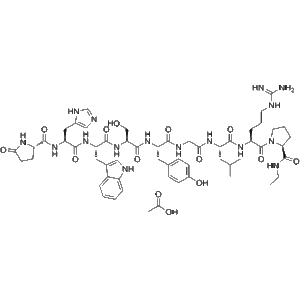
Side Effects (For Research Context Only)
Research observations suggest potential side effects associated with Fertirelin acetate administration in veterinary studies:
Transient Hormonal Imbalances – Overstimulation of LH and FSH may disrupt normal ovarian cycles.
Injection Site Reactions – Local irritation, swelling, or mild inflammation.
Reduced Efficacy with Repeated Use – Possible receptor desensitization or downregulation.
Species-Specific Responses – Differences in GnRH receptor sensitivity across cattle, swine, and other animals.
Endocrine Feedback Alterations – Prolonged exposure may suppress natural GnRH pulsatility.
Behavioral Effects – Observed changes in estrous behavior in bovine research models.
These potential effects highlight the need for controlled laboratory studies, ensuring accurate data interpretation.
Disclaimer
For laboratory research use only. Not intended for human or veterinary therapeutic use.
Keywords
Fertirelin acetate
GnRH analogue peptide
LH-RH analogue peptide
Fertirelin acetate bovine cyst research
Veterinary reproduction research peptide
Ovarian cyst reversal peptide
Estrus synchronization analogue
Peptide for reproductive endocrinology studies
GMP-grade veterinary research peptides
Additional information
| Weight | 0.8 kg |
|---|---|
| Dimensions | 53 × 25 × 53 cm |
What is Fertirelin acetate?
A synthetic analogue of GnRH/LH-RH used in reproductive physiology research.
What is the CAS number?
CAS No. 66002-66-2.
What is its mechanism of action?
It binds to GnRH receptors in the pituitary and stimulates LH/FSH release.
Why is it studied in cows?
For reversing follicular cysts and restoring normal ovarian cycles.
Is it more stable than natural GnRH?
Yes, Fertirelin acetate has greater enzymatic stability and potency.
What is its molecular weight?
~1246.4 g/mol (base peptide, acetate salt included).
What is its purity?
≥ 98% confirmed by HPLC.
How should it be stored?
At –20°C in lyophilized form, protected from moisture and light.
Can it be used clinically in humans?
No, it is strictly for laboratory and veterinary research use only.
What makes it unique compared with other GnRH analogues?
Its strong receptor binding and efficiency in bovine reproductive studies.

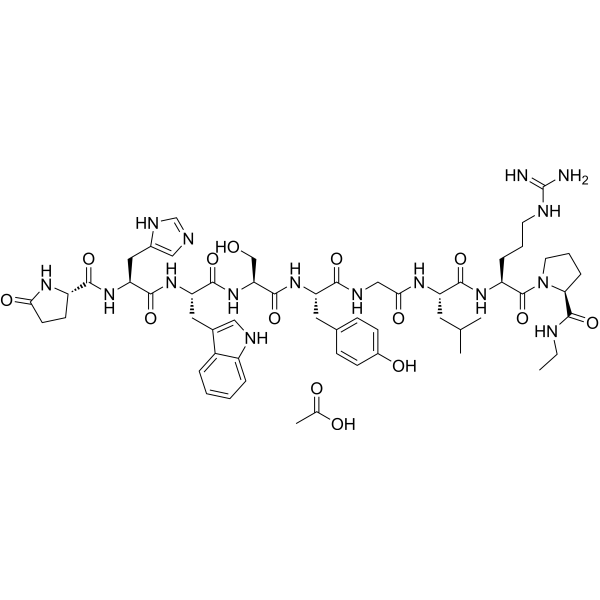



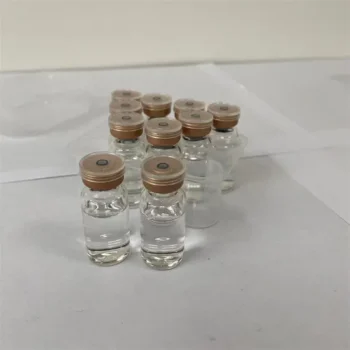
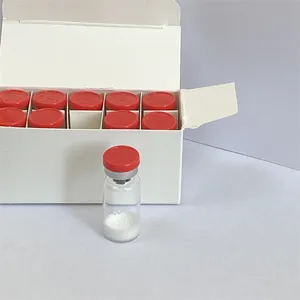

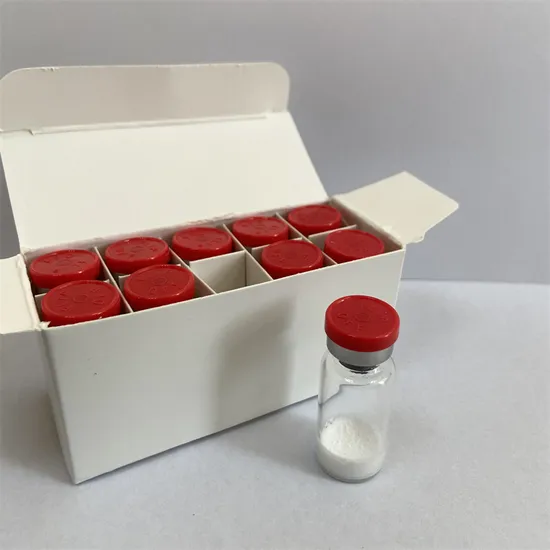
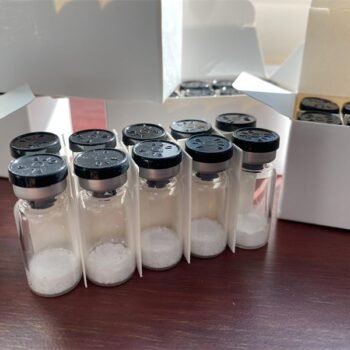
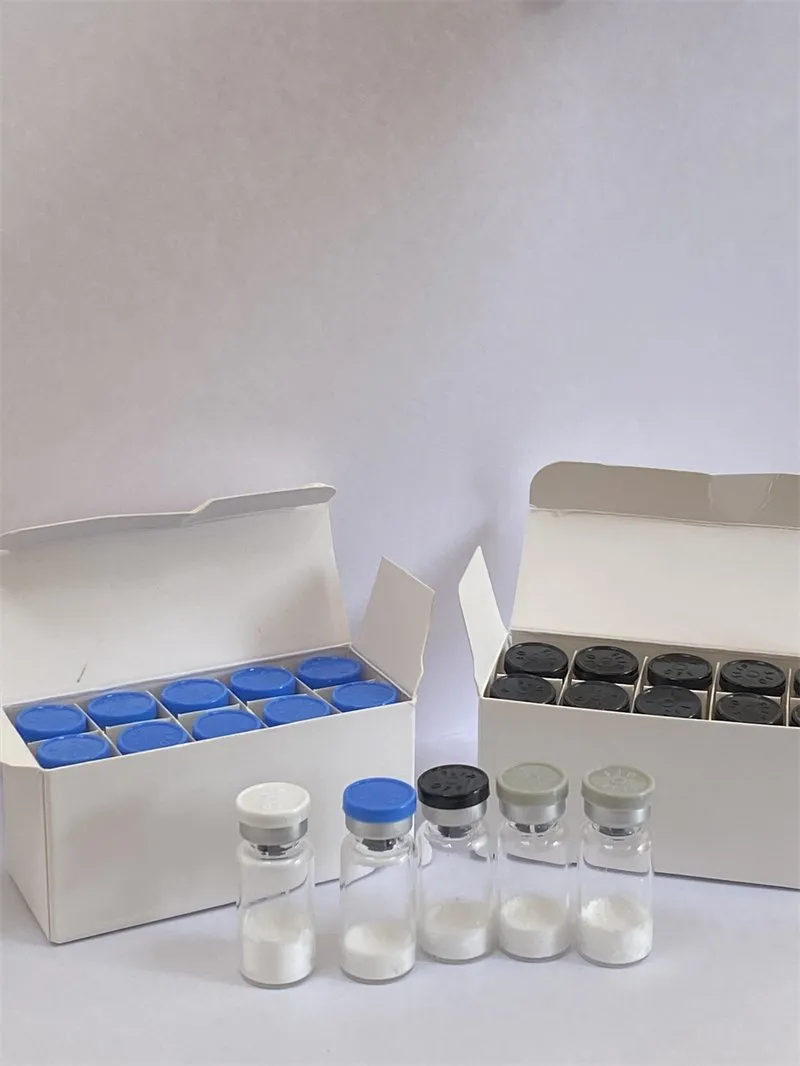
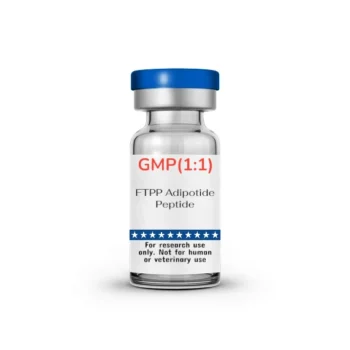
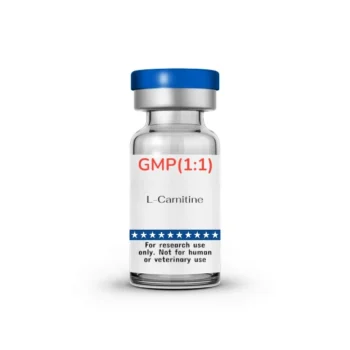
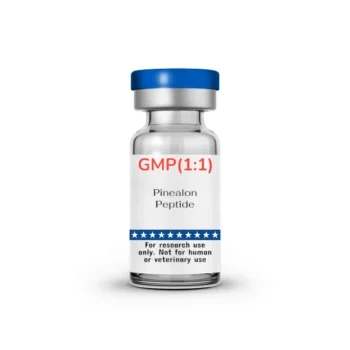


Reviews
There are no reviews yet.